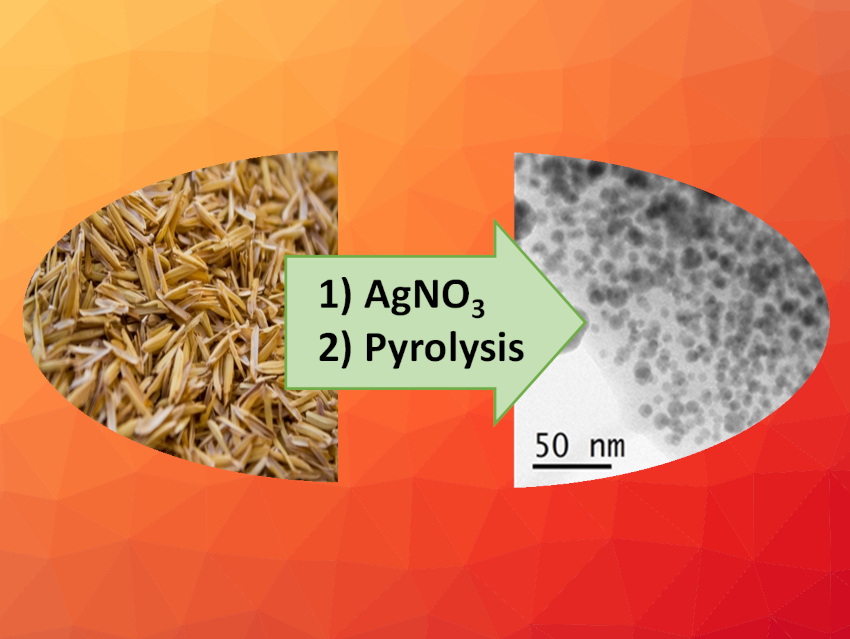Rice is among the most common food crops on Earth, and the sustainable management of its waste can pose a challenge. The practice of open-field burning at the harvesting sites results in massive emissions of greenhouse gases and particulate matter.
Esteban Mejía, Leibniz Institute for Catalysis, Rostock, Germany, Michael Lalk, University of Greifswald, Germany, and colleagues have devised an alternative use for this problematic bio-waste. The team developed a simple method to prepare highly antimicrobial materials consisting of silver nanoparticles supported on carbon/silica composites derived from rice husk. First, the rice husk samples were shredded and milled. Then, they were mixed with AgNO3 and ethanol. The solvent was removed, followed by pyrolysis at 600 °C. The team prepared a series of materials using different amounts of silver.
The resulting materials showed high stability and excellent antimicrobial activity against the so-called ESKAPE pathogens: E. faecium, S. aureus, K. pneumoniae, A. baumannii, P. aeruginosa, and E. coli. They also acted against the fungus C. albicans. High antimicrobial activity was observed even when extremely low amounts of silver were loaded on the support. These cheap antimicrobial materials could potentially be used in multifunctional filters and coatings for, e.g., water sanitation and medicinal applications.
- Preparation, Characterization and Antimicrobial Properties of Nanosized Silver‐Containing Carbon/Silica Composites from Rice Husk Waste,
Felix Unglaube, Alexander Lammers, Carsten Robert Kreyenschulte, Michael Lalk, Esteban Mejía,
ChemistryOpen 2021.
https://doi.org/10.1002/open.202100239




